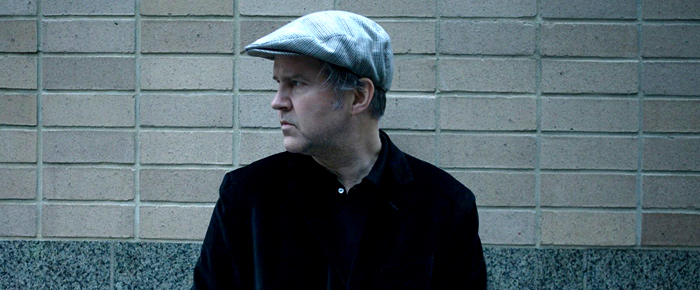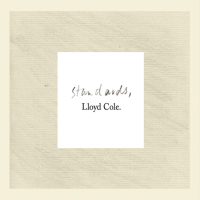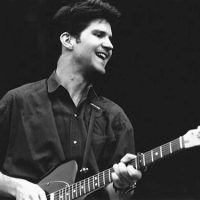
By Eleni P. Austin
“Doesn’t it stink to be human? Fallible, weak so tiresome/How could God create a beast so low? How should I know?” That’s Lloyd Cole lamenting the human condition in the song “Blue Like Mars” from his latest album, Standards.
When Punk Rock exploded in Great Britain it set the stage for a musical revolution. The feral antics of bands like the Sex Pistols and the Damned opened the door for the more nuanced approach of the Clash and the Jam.
Ironically, the advent of Punk Rock ushered in a songwriting renaissance that lasted until the mid ‘80s. Led by Punk poet laureate Elvis Costello, the first wave included Joe Jackson and the Jam’s Paul Weller. Their songs combined the storytelling prowess of the Who’s Pete Townshend and the Kinks’ Ray Davies with the literate wordplay associated with Cole Porter and Ira Gershwin.
The second wave of talented wordsmiths included Morrisey from the Smiths, Roddy Frame from Aztec Camera, Paddy McAloon from Prefab Sprout and Lloyd Cole, who fronted Lloyd Cole & The Commotions.
Lloyd Cole was born in Buxton, Derbyshire, England in 1961. He grew up close by in Chapel-en-le-Frith. When it was time for college, he originally studied law at University College London.
By the time he switched to University Of Glasgow he was majoring in English and Philosophy. It was there he met drummer Stephen Irvine, guitarist Neil Clark, bassist Lawrence Donegan and keyboard player Blair Cowan and formed the Commotions.
The band signed with Polydor Records in the U.K. and Geffen in the U.S., releasing their debut, Rattlesnakes, in 1984. Cole wrote all the songs, highly influenced by T. Rex, Punk Rock and Bob Dylan, in fact he is quoted as saying he “was drunk on Dylan” during this period.
Cole’s lyrics displayed a musical sophistication that belied his tender age. He referenced everyone from Simone de Beauvoir and Greta Garbo to Norman Mailer (and his tailor). The melodies were a pleasing mix of Folk Rock jangle. The album was a critical and commercial success in Great Britain and received restrained approval in America.
Between 1984 and 1989 the band released two more albums, Easy Pieces, named after the seminal Jack Nicholson film, “Five Easy Pieces,” in 1985 and “Mainstream” in 1987. Both achieved respectable sales but received cooler critical receptions.
Once the band broke up, Cole relocated to New York and began concentrating on a solo career. He hooked up with drummer Fred Maher, (Material, Scritti Politti), and legendary guitarist Robert Quine, (Richard Hell & The Voidoids, Lou Reed). Maher suggested Matthew Sweet, just beginning his own solo career, be recruited for bass duties.
Cole’s self-titled debut arrived in early 1990. The sound was stripped down, but the lyrics were at once cinematic and evocative. He quickly followed up in late 1991 with Don’t Get Weird On Me Babe. The title was inspired by a Raymond Carver story. The first half of that album was straightforward Rock & Roll, the second half a lush suite of songs that recalled the subtle complexities of Burt Bacharach compositions.
He continued to record in the ‘90s refining his sound on albums like 1993’s “Bad Vibes” and “Love Story” from 1995. Perhaps missing the camaraderie of a band, he formed The Negatives in 1997 with Jill Sobule on guitar and vocals, Dave Derby on bass, Michael Kotch on guitar and Rafa Maciejak on drums. Their eponymous debut was released in 2001, “Etc” arrived two years later.
As the new millennium progressed, Cole was back on a solo career path. He recorded three albums, Music In A Foreign Language in 2004, Anti-Depressant in 2006 and Broken Record in 2011. Although he has a passionate fan base, he maintains a low profile.
After a four year absence Cole has returned with his 10th solo album, Standards. Surprisingly, the album opens with a cover of John Hartford’s “California Earthquake.”
Rather than follow Hartford’s Folk/Bluegrass template, Cole amps up the angst on this doomsday rocker, with insistent, plinking piano chords, pummeling drums and coiled guitar riffs that snake through the melody. Cole’s mien is blasé as he intones “Atlantis will rise, Sunset Boulevard will fall/Where the beach used to be, there won’t be nothin’ at all.”
Just as the last ringing chords subside for “…Earthquake,” “Women’s Studies” kicks in. Sharing musical DNA with The Rolling Stones’ “Dead Flowers,” the song offers a playful recollection of Cole’s debauched University years, getting baked to Springsteen’s Nebraska album and expanding his mind reading Howard Zinn’s “People’s History Of America.” He succinctly sums it up, “We were young and we were stupid, it was fun while it lasted/To complete my education I had to wake up in your bathtub/Oh those Monday morning quarters I grew so accustomed to.”
The next two tracks, “Period Piece” and “Myrtle And Rose,” pull at the same collegiate thread. The former opens with thrumming, Entwistle-esque bass lines giving way to chiming Byrdsy guitar. Here, Cole embellishes his campus radical cred; “It was my austere demeanor defined the age, next to me the green world greener and the grey world grey/The old man came said destroy this symbolism…Western hedonists mourn my passing daily.”
The latter is a slower more contemplative look at his years as a callow campus Casanova, cutting a carnal swath across the women’s dorms. “Lost will be the souls of the wanton and the weak.” Realizing he has fallen for one of his conquests, he is crestfallen to discover he was just a notch in her bedpost. Here he quietly crafts the best phrase ever to characterize the slow sting of unrequited love…“The longer you were gone the less the longing.”
A couple of songs tackle love from a more seasoned vantage point. “No Truck” is accented by sunshiny acoustic chords and a country comfort melody. Cole slips into the skin of a jilted lover who’s beautiful surroundings leave him cold. “I have seen the high road and the low, I found no satisfaction/I have seen the mountains sweep down to the sea, I heard the music it’s not moving me.” Despite his dour sentiments, sweet arpeggios dart and pivot like fireflies.
“Silverlake” finds him in a placating mood following a lover’s quarrel. Over hushed acoustic guitars, a kick-drum beat and sawing violin, Cole is penitent, but not particularly apologetic. He admits, “No I don’t love you like I should/Baby, I can’t leave you like this.”
Jittery, ‘90s era Lloyd Cole reappears on two songs. The aforementioned “Blue Like Mars” weds caffeinated rhythms and stately synths to fractious, growling guitars.
“Opposites Attract” offer a smart-ass declaration of love over wiry, angular guitars. The melody and dense instrumentation recalls the minimalist (albeit danceable) angst of proto-punkers Television and Post-Punk progenitors Gang Of Four.
Other interesting tracks include the sweet and sour samba of “It’s Late” (fidelity with an expiration date) and the satirical shuffle of “Kids Today.”
Here Cole lampoons the age old conceit that teenagers are only concerned with fads, riffing on Be-Bop Jazz and jitterbugging, Rock & Roll rites of passage and codified Punk Rock rituals. It ends with this tart non-sequitur, “how can you say there’s nothing wrong with kids today/We got post ironic ennui, and Queens Of The Stone Age/I love your Vivienne Westwood shirt, why won’t you let me wear it?”
The album closes with “Diminished Ex,” an acrid mea culpa shot through with bitterness and regret. Pin-wheeling guitar riffs flare and spark, accentuating Cole’s obdurate demeanor. It’s a curious end to a wonderful record.
Standards was recorded in New York, East Hampton and Los Angeles. Cole relies on old friends like Fred Maher, Matthew Sweet and Dave Derby for drums, bass and backing vocals. Even ex-Commotion Blair Cowan provides keyboards. Cole plays most of the lead guitar. (Of course, Robert Quine’s stinging pyrotechnics are sorely missed, since he passed away in 2004.)
Lloyd Cole never disappoints. Standards is a rich and nuanced portrait of the artist as a not-so-young man.











































